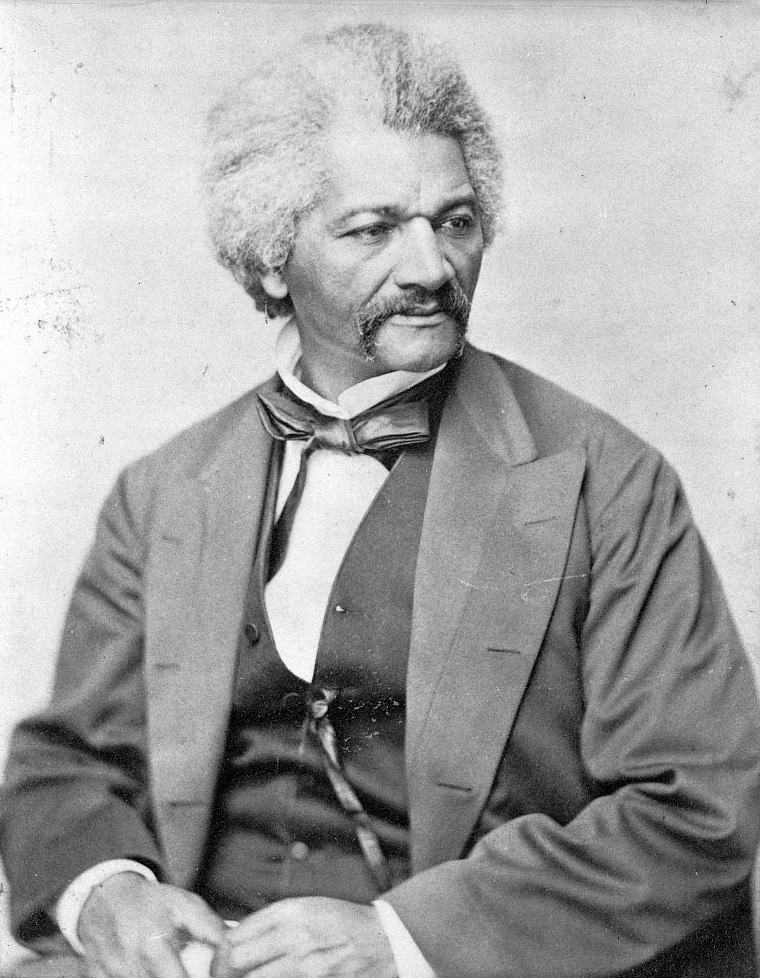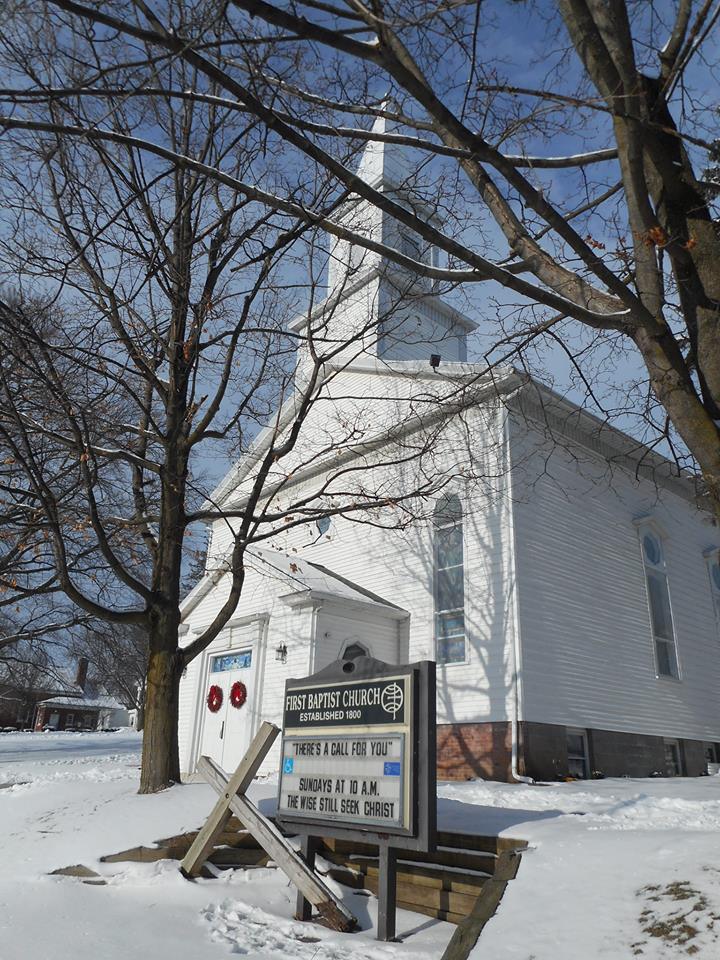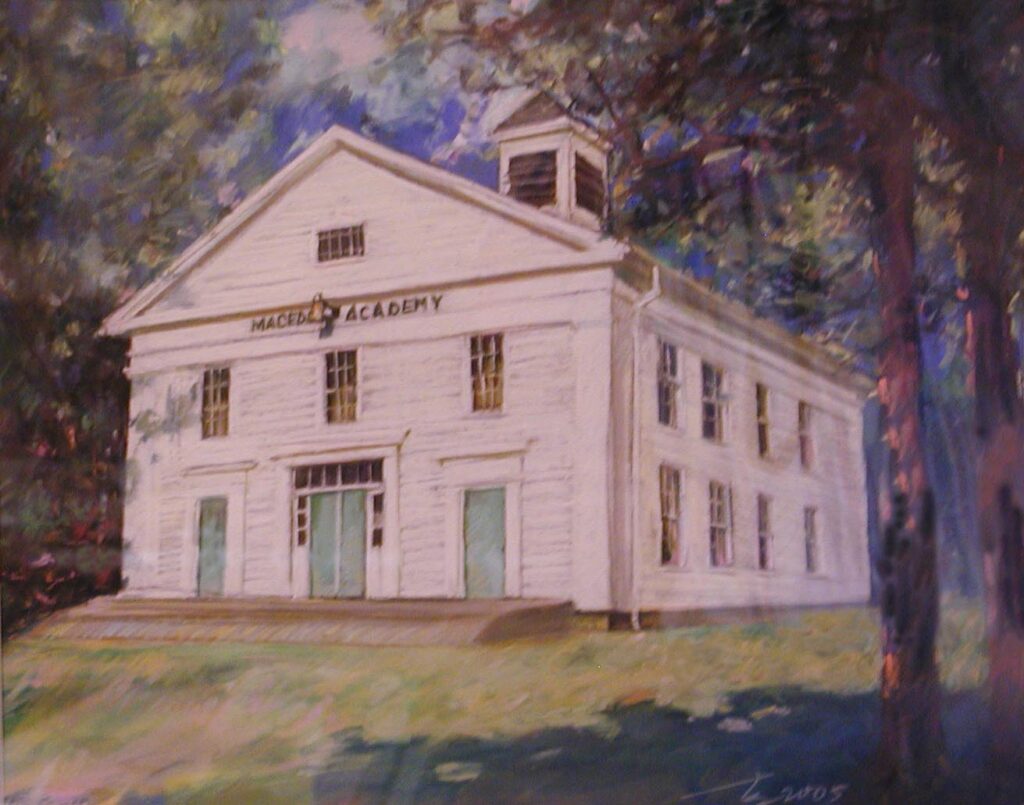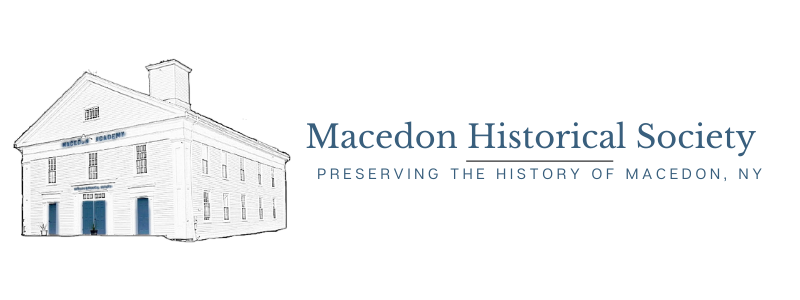Frederick Douglass’s Visit to Macedon
February 25, 2015
This article is contributed by June Hamell, Macedon Town Historian,
Linda Braun, Village of Macedon Historian and Sandy Pagano, President
of the Macedon Historical Society:
It was in August 1849 that Frederick Douglass visited the First Baptist Church of Macedon, NY. His visit was recorded in the book, “First Baptist Church of Macedon, A History of the First Two Hundred Years 1800-2000.”
Here is a portion of the article from this book:
“A brush with history occurred in August 1849 when, according to his The North Star of August 24, 1849 Frederick Douglass delivered an evening lecture to the Macedonians and, the next day, held an anti-slavery fair.” (p. 33)
…A large assemblage of persons was secured to hear the anti-slavery subject considered, and to see anti-slavery principles practically carried out in a manner that they had never seen before, and we have good reason to think there was much prejudice removed, and much interest excited among them. They saw, perhaps for the first time, that white and colored persons could meet together in the same forum, and treat each other with kindness and respect – an important end attained in this Christian country.” (p.33)
Mr. Douglass pays tribute in the North Star article to four main abolitionist families in Macedon for their provision and support: Mr. and Mrs. Doty and family; Mr. Esick Wilbur and family; Asa Smith and family; William Getchell and family. Although the monetary proceeds from the anti-slavery fair were not great, the value was great in establishing the idea of equality. The example demonstrated and actions taken by our forefathers is
to be commended. Taking a risk, learning something new, accepting new ideas and perspectives is something we can all continue to learn from.
More Visits by Frederick Douglass
Fourteen years after Mr. Douglass settled in Rochester we find a reference in Book VI page 5 of the C. W. Packard Diaries to a visit that Mr. Douglass made to Macedon.
On Tuesday March 5, 1861, Mr. Packard writes: Home! When got up this morning, found 4 or 5 inches of snow on the ground, and the mud stiff enough to hold about 3/4 of the time. After breakfast this morning we packed up. Father carried us to the Albion Depot in a sleigh. It snowed till about 1/2 past 9, very hard. We left Albion at 8:50, it continued to snow till we got to Brockport, there the sun shine out, and has shined most of the day
since, though the air has been chilly. We came through, arriving at Macedon at 11:15. Ex-Lieut. Gov. Church, was in the same car with us, as far as Rochester, and Fred Douglass from there to Macedon.”
And on March 6th he writes at the end of the daily entry: “Fred Douglass speaks before the Philomathean Society tonight.”
The Philomathean Society is a literary society that promotes learning. The University of Pennsylvania still has one. This can include speakers, speaker series, debates – all activities designed to challenge one to think about an issue and draw conclusions. We do not know the exact topic for Mr. Douglass’ speech that evening but we can guess that it had to do with the equality of all humans. Mr. Packard does not tell us if he attended but it was important enough for him to include it in his diary. Mr. Douglass spoke in the area from time to time.
He spoke at the 1816 Quaker Meeting House in Farmington and since many Quakers from Macedon attended that meeting, it was a logical step for him to speak here in Macedon.
Did he speak more than once at the Baptist Church and the Macedon Academy? We don’t know. But he did open the way for others. And Macedonians became more involved in equality issues as a result.
About Frederick Douglass
Mr. Douglass was born a slave in 1817 in the Chesapeake Bay area of Maryland. He escaped slavery in 1838. He visited Rochester, NY in 1843 and became a “conductor” on the Underground Railroad in 1847. He settled in Rochester and lived there for twenty years and during that time period spoke on abolition and equality all over the northeast. It was in Rochester that he operated a newspaper called the “The North Star.” Mr. Douglass
died in 1895 in Washington, D.C. and is buried at the Mount Hope Cemetery in Rochester, New York.

Frederick Douglass 
First Baptist Church on Main Street in Macedon 
Macedon Academy in Macedon Center
